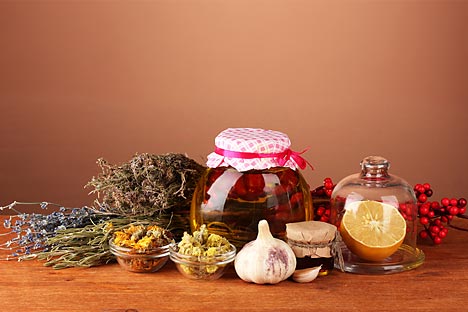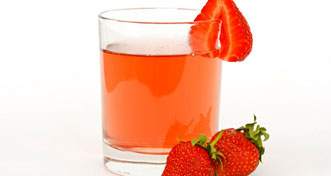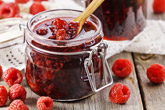Why Russians prefer alternative medicine

There are many different recipes for non-traditional medicine in existence, and despite the fact that many Russian doctors actively call upon people to consult a specialist for any ailments, to the present day many Russians prefer to heal themselves. Source: PhotoXpress
According to the most recent data, people have been aware of the healing properties of plants since 6,000 B.C. In his day-to-day life, ancient man would note the healing properties of different plants and use them to cure colds and infections.
In Ancient Rus, wise men and healers were worth their weight in gold: They were the ones who knew the secrets of the wonderful influence that herbs can have on the human body. Later on, monasteries in Ancient Rus became healing centers, where medicinal plants would be harvested and recipes put together starting in the 11th century.
St. Seraph of Sarov and Sergiy Radonezhskiy were among the most famous monastery healers. According to the testimony of his contemporaries, the latter performed a great many miracles. Legend has it that he once brought back from the dead a boy who had died in his father’s arms, after his father brought him to the priest for healing.
Non-traditional medicine at that time was divided into a number of areas: herbalists and sorcerers used herbs, while healers practiced magical healing methods. Midwives were set apart, their task to assist pregnant women and to practice maternity care using homemade medicines.
Special educational institutions existed in Russia, even right up until the beginning of the 20th century: They were schools of midwifery teaching the basics.
Herbalists and sorcerers exist to this day. Moreover, they enjoy great success in contemporary Russia—especially among the elderly. Healing with the use of herbs has steadily become a business industry in Russia in which phytotherapists are earning big money. Herbal centers have appeared in many Russian cities in recent years.
Natalya Nikolayevna, director of the healing center of herbalist Mikhail Gordeyev, noted: “Today Russia is overtaking Europe’s experience in this regard; we realize how important it is to lead a healthy life.” She continued: “We have been to several seminars in Europe, and we have seen specialist herbal stores where specialists perform consultations and administer the required medicines.”
According to Natalya, dietary supplements now popular across the globe are often copied, and many people are simply afraid of buying them. “They are not cheap—on average from 500 rubles [$15] up to 1,500 [$45]—and many people just can’t afford them. Therefore, I think that many are resorting to herbs and phytotherapy for help,” the specialist said.
According to Natalya, often men and women suffering from infertility, as well as mothers with children, are the ones who turn to phytotherapists.
“More than 20,000 patients are undergoing treatment at our center. We have already seen a great number of miracle cures,” said Natalya. “One recent case is even amusing. We had a patient with cirrhosis of the liver — an old woman who had been registered as an invalid due to her cirrhosis. Following a course of treatment, she went to her doctor’s surgery and began to cry. She was told that she was in good health and that her invalidity would be removed. ‘Why are you crying?’ asked the doctor. ‘Now I won’t be paid invalidity benefit,’ she replied.”
How does it work?
There are many different recipes for non-traditional medicine in existence. Despite the fact that many Russian doctors actively encourage people to consult a specialist for their ailments, many Russians still prefer to heal themselves to this day. For those who prefer waiting in line to see a doctor to healing themselves at home, we present Russia’s most popular recipes for homemade medicine.
For coughs and throat diseases
- Grind up 8 large cloves of garlic into a uniform pulp in a mortar, add 8 teaspoons of wine vinegar, stir well and leave in the fridge overnight. In the morning, add to the mixture 2 tablespoons of dark honey that has been warmed through. Stir well again. Hold 2 teaspoons of the mixture in your mouth for as long as possible—so that it does not dissolve—and then swallow the mixture in shallow gulps.
- Gently hit the leaves of a white cabbage with a tenderizer. Apply to the neck and wrap in a warm scarf. Change the leaves every two hours. This treatment stops the inflammatory process in the throat.
For exhaustion
- Mix together 16.5 ounces of crushed walnut kernels, 10.5 ounces of honey, 3.5 ounces of aloe and the juice squeezed from 3-4 lemons. Take one teaspoon of the mixture three times a day, half an hour before a meal.
- Add a teaspoon of crushed basil to 7 ounces of boiling water and infuse in a covered container for 20 minutes. Infuse and drink as you would tea with honey, no more than twice a day.
For a headache
- Break 10 cloves of garlic and add 1.5 ounces of milk, then warm the mixture on a stove. Bring the mixture to a boil, then turn down the heat and cook for another five minutes. Strain the simmered down mixture. Put 5-10 drops of the resulting infusion in each ear, wait for one minute and then remove from the ear by tilting the head.
- Pour 3 teaspoons of crushed nettle leaves into 13.5 ounces of boiling water, cook on moderate heat for 3-4 minutes and leave to infuse for an hour. Drink half a cup over the course of the day. Strain before taking.
All rights reserved by Rossiyskaya Gazeta.
Subscribe
to our newsletter!
Get the week's best stories straight to your inbox

